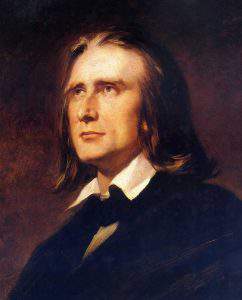How Ferenc Liszt, a Hungarian revolutionized digital piano & classical music
Talks about music and talks about today’s Digital Piano is incomplete without taking the name Ferenc Liszt.
Sponsored article
Ferenc (Frank) Liszt, born in October 1811, was a Hungarian music composer. He was more widely a virtuoso pianist. Not restricted to that, he was also a music teacher and an organist of the Romantic era. He is also recognized as a writer and a philanthropist.
Not only that he was a prolific composer, his diverse and extensive work ideas influenced the music trends as we see them today. The man became one of the most protuberant representatives of the New German School. In case, if you’re wondering where to get yourself a piano, We have a Digital Piano in our home which we got it after reading reviews on Piano Nadu.
Ferenc Liszt as a Pianist:
 Liszt has inscribed his name to be the most celebrated pianist that ever lived. Some can give the exact impression of the playing Liszt. In the view of some people, he played as if he knew exactly what his audience wants to hear, what they are feeling, and how they want their surroundings to be.
Liszt has inscribed his name to be the most celebrated pianist that ever lived. Some can give the exact impression of the playing Liszt. In the view of some people, he played as if he knew exactly what his audience wants to hear, what they are feeling, and how they want their surroundings to be.
People also mentioned that Liszt was sometimes mocked in the press for the facial expressions and gestures, which he gave in rhythm to his music to provide a more intense feeling. He was not only perfect in playing the music of great composers but also was known to have tweaked them and added his little works to mold his music according to the surroundings.
Revolutionizing Piano
Piano today, as we know, was never the same. Apart from the basic design of the keys and the structure, its interiors were different. At that time, it was called a Harpsichord, a material comprised of a harp and a keyboard.
Around the early 18th Century, the original structure of the harpsichord was replaced by the name pianoforte. In the new structure, instead of plucking the strings as in a harp, they were struck by soft, small, leather-wrapped hammers. The overall frame was still wooden, and the string was kept at low tension.
The Piano, as we know today, called fortepiano, is far different than the original model of the pianoforte in many terms. The string in the new one is kept at high tension, the strings are no longer attached to the wooden frame, but with metal. This not only tweaked the overall sound of the musical instrument but also improved the common problem of vibration in it. And with the addition of the pedals, came the revolution and the invention of the Piano, as we know it today.
Although Ferenc Liszt might not have many contributions in designing the structure of the revolutionized Piano well, his story and the Piano can be said to have revolutionized the classical music.
Liszt and Classical Music
Composers such as Beethoven also helped in improvising the model of Piano by far to a greater extent. The old piano models were not pleasant, they needed improvement, and this came to light with the help of Beethoven. He, on his practices, studies, and works on a piano created a world that has levelled up music. Once Beethoven broke about 75% of his Piano’s strings and complained to the manufacturers about how weak the instrument was. This not only gave room for improvement but helped in adding more features to the device too.
It was nine years to Beethoven’s death that Liszt was born. Once upon a time, on his trip to Paris, he ventured into a piano shop named Erard Piano and played a tune on the instrument. Erard, fascinated by the young mind, saw a brilliant business opportunity and made a deal with the boy.
He signed on an agreement on a three-year musical tour. On this tour, Erard planned for all musical performances and provided with everything to the boy. He would then have to part in several concerts in all small and big towns. The tour only suspended because of the death of Liszt’s father. Erard also came to be known as the man who introduced pedals in the Piano.
But one day, during a concert, Liszt saw a violinist with the name Niccolò Paganini. By seeing his performance, he got extraordinarily motivated. He, fascinated about how the violin has improved in two years while the Piano showed no advancements at all in those many years, got onto his feet to change the world. He practiced hard, played Piano a lot, broke every limit, composed many songs, and gave birth to a whole new world of classical music.
He even gave his first solo performance and not oy for him, but for the world, it was the first solo performance.
Conclusion
Although, the guy did not have any contribution to the outer structure, but his works with the rhythm and the music is all that it counts.
please make a donation here
Hot news
Minister: Hungary will protect its territory by every means possible
Orbán cabinet may double airspace fee: another ticket price increase?
Hungary expanding the list of prohibited designer drugs
Hungarian minister: Ukraine ‘blackmailing’ Hungary and pro-peace states
Cocaine found on a Greek bus at southern border of Hungary
NCIS star arrived in Budapest: spin-off filming started




